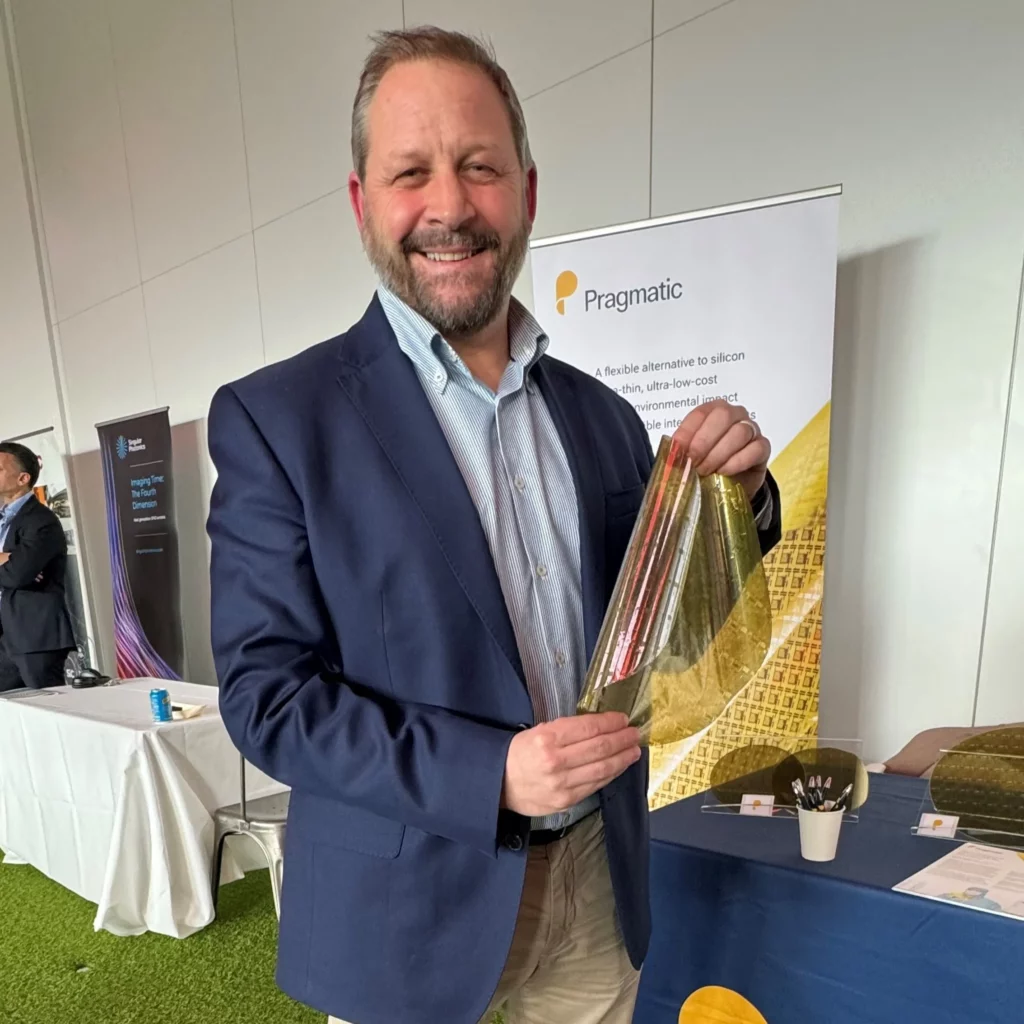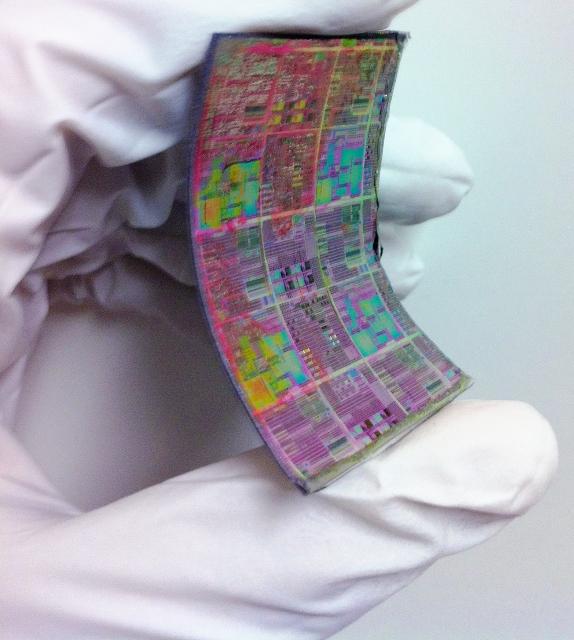Introduction
In a groundbreaking move, Pragmatic Semiconductor has marked a significant milestone for the United Kingdom and the global semiconductor industry with the inauguration of the Pragmatic Semiconductor Launches UK’s First 300mm Wafer Fab in Durham.
This cutting-edge manufacturing facility introduces a paradigm shift in chip production, leveraging Pragmatic’s flexible integrated circuit (FlexIC) technology as a sustainable alternative to traditional silicon chips.

First of its kind in the UK: This is the first time the UK has had a fab capable of producing these large 300mm wafers.
Focus on flexible electronics: The fab produces chips based on Pragmatic’s unique flexible integrated circuit (FlexIC) technology, targeted for smart objects and Internet of Things (IoT) applications.
“I am incredibly proud of what the team has achieved and the ambition of our mission to enable item level intelligence in over a trillion sustainable, smart items over the next decade,”
CEO David Moore
Follow us on Linkedin for everything around Semiconductors & AI
FlexIC Technology: Redefining the Chip Landscape
At the heart of Pragmatic’s innovation lies its FlexIC technology. Unlike conventional silicon chips, FlexICs are not only cost-effective but also environmentally sustainable.
FlexIC stands for Flexible Integrated Circuit. It’s a revolutionary technology developed by Pragmatic Semiconductor that creates ultra-low-cost, thin, and bendable integrated circuits .

Here’s a breakdown of its key features:
Flexibility: Unlike traditional silicon chips which are rigid, FlexICs are made on a plastic or similar film, allowing them to conform to curved surfaces and be embedded in everyday objects.
Low Cost: The manufacturing process for FlexICs is simpler and uses less material compared to silicon chips, resulting in significantly lower production costs.
Fast Production: Pragmatic’s FlexIC fabrication boasts rapid cycle times, enabling production of chips in as little as 48 hours, which translates to faster turnaround for businesses using them.
Environmental Friendliness: The process uses less energy, water, and generates fewer pollutants compared to traditional chip manufacturing.

Here are some of the benefits FlexIC technology offers:
Ideal for Everyday Items: Their thin and flexible nature makes them perfect for embedding in labels, packaging, clothing, or even medical devices .
Applications in Various Fields: They can be used for Radio Frequency Identification (RFID) tags, near-field communication (NFC), basic computations, and even sensor applications in various industries.
Faster Time to Market: With rapid prototyping and production cycles, companies can bring products using FlexICs to market quicker.
Overall, FlexIC technology offers a new approach to integrated circuits, making them more accessible and suitable for a wider range of applications, particularly in the realm of smart objects and the Internet of Things (IoT).
By offering a flexible form factor, FlexICs empower seamless integration into various products and systems, revolutionizing industries across the board.

Read More: Twice the Speed, Half the Power of Nvidia’s H100: Intel Releases AI Chip Gaudi 3 – techovedas
What’s Special about this UK’s First 300mm Wafer Fab
Large Scale Production: The Pragmatic Park facility has the potential to house up to nine individual fabrication lines. Each of them are capable of churning out billions of chips annually .
Sustainable Approach: Pragmatic boasts a sustainable manufacturing process with several advantages. It uses less energy and water than traditional silicon chip fabrication and generates fewer harmful gasses . Additionally, it achieves this with a smaller physical footprint and a streamlined process with fewer steps.
Faster Production Cycles: The optimized manufacturing process allows for rapid production cycles of less than 48 hours. This translates to faster time-to-market for their clients.
While these chips aren’t direct replacements for high-performance computer applications, they cater to the growing smart object and IoT market in consumer electronics, industrial applications, and even healthcare.
Driving Economic Growth and Job Creation
Beyond technological innovation, Pragmatic Semiconductor’s impact extends to regional economic development.
With the capacity to host up to nine fabrication lines at Pragmatic Park, the company anticipates creating over 500 highly skilled jobs in the North-East of England and Cambridge over the next five years.
This investment in talent and infrastructure underscores Pragmatic’s commitment to driving economic growth and fostering innovation in the UK.
Read More: Nvidia, Amazon Pour $110 Million into AI with US- Japan University Alliance – techovedas
Conclusion
UK’s first 300mm semiconductor wafer fab opens in Durham, powered by Pragmatic Semiconductor’s FlexIC tech.
Pragmatic Semiconductor prioritizes sustainability, innovation, and collaboration.
The inauguration marks a new era in semiconductor manufacturing. Economic growth, job creation, and digital transformation are key goals.
Pragmatic Semiconductor poised to lead in shaping the semiconductor landscape. Prepared to drive industries towards a connected, sustainable future.



